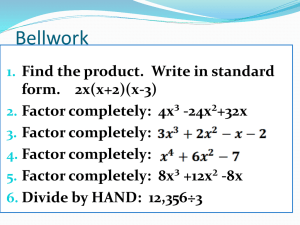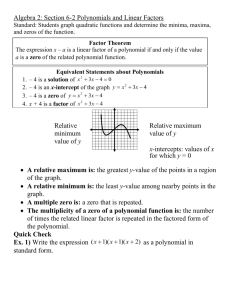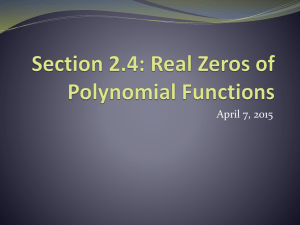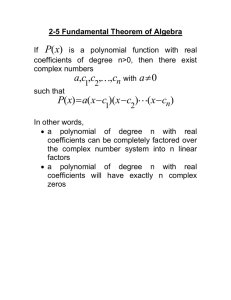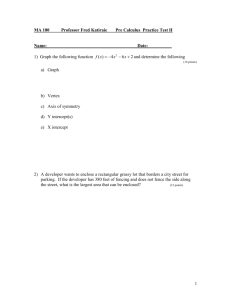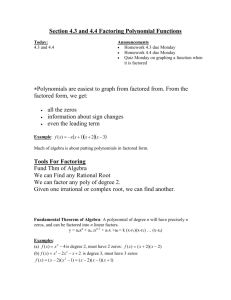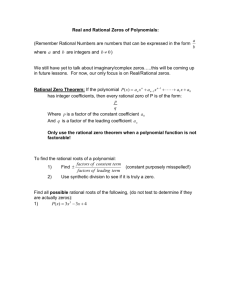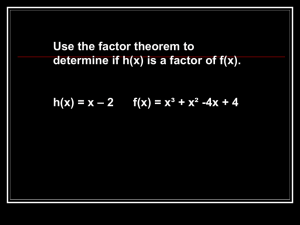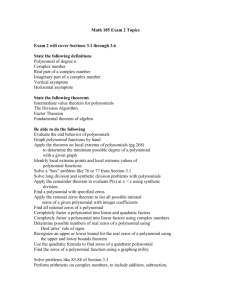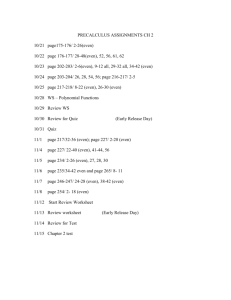SWBAT to find zeros of polynomial functions and their multiplicity
advertisement
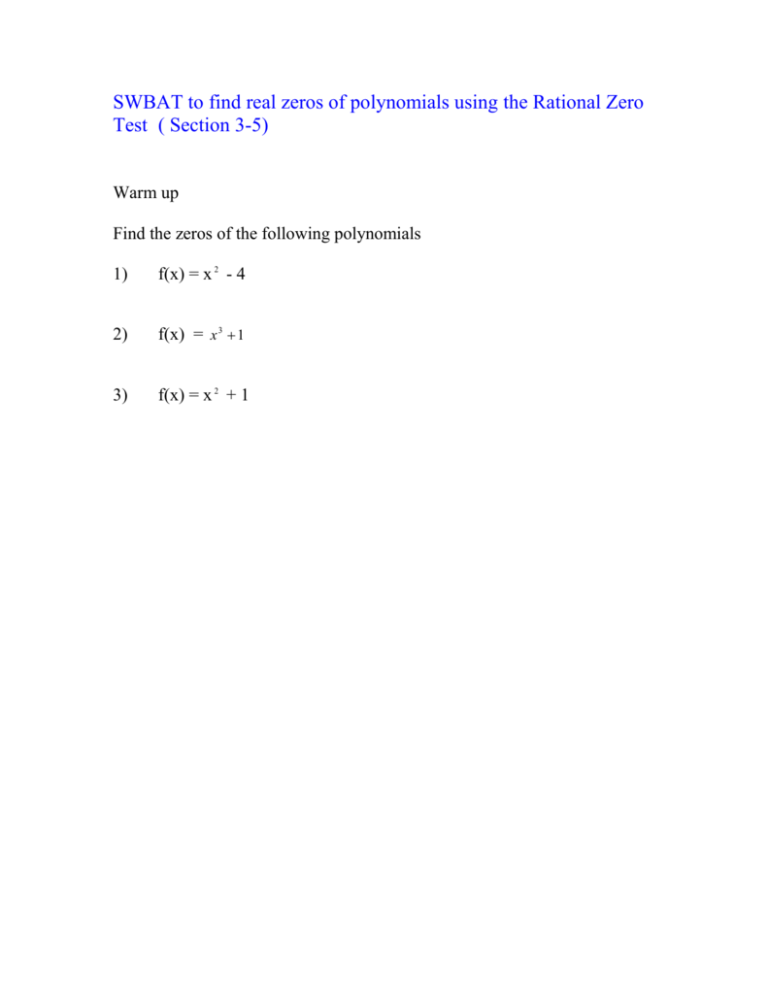
SWBAT to find real zeros of polynomials using the Rational Zero Test ( Section 3-5) Warm up Find the zeros of the following polynomials 1) f(x) = x 2 - 4 2) f(x) = x 3 1 3) f(x) = x 2 + 1 SWBAT to find real zeros of polynomials using the Rational Zero Test (Lesson 16 - Section 3-5) Recall: We were able to identify the real zeros of a polynomial function because either the polynomial function was in factored form or it could be easily factored. How do we find the real zeros of a polynomial function if it is not factored or cannot be easily factored? Theorem: Number of Real Zeros A polynomial function of degree n, n ≥ 1, has at most n real zeros. The Rational Zero Test Let f be a polynomial function of degree 1 or higher of the form f(x) = anxn + an-1xn-1 + …..+a1x + a0 a0 ≠ 0, an ≠ 0. p , in lowest terms, is a q rational zero of f, then p must be a factor of a0, and q must be a factor of an. Where each coefficient is an integer. If SWBAT to find real zeros of polynomials using the Rational Zero Test (Lesson 16 - Section 3-5) Example 1) Listing the Potential Rational Zeros of Example 2) Find the rational zeros of Write f in factored form. Example 3) Find the real zeros of Write f in factored form. f ( x) 2 x 3 11x 2 7 x 6 f ( x) 2 x 3 3 x 2 8 x 3 . f ( x) x 5 x 4 4 x 3 8x 2 32x 48 Steps for Finding the Real Zeros of a Polynomial Function 1) Use the degree of the polynomial to determine the maximum number of zeros. 2) If the polynomial has integer coefficients, use the Rational Zero Test Theorem to identify those rational numbers that potentially can be zeros. 3) Using a graphing utility, graph the polynomial function. 4) Use the Factor Theorem to determine if the potential rational zero is a zero. If it is, use synthetic division or long division to factor the polynomial function. Each time that a zero (and thus a factor) is found, repeat step 4 on the depressed equation. In attempting to find zeros, remember to use (if possible) the factoring techniques that you already know.
